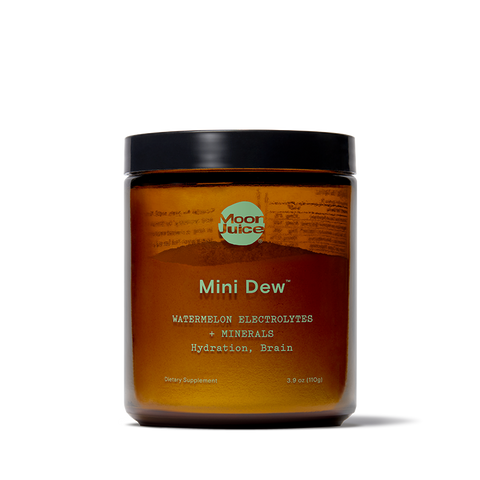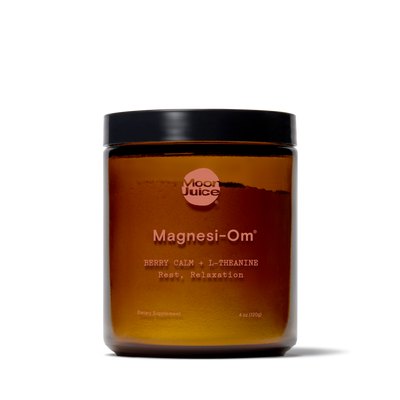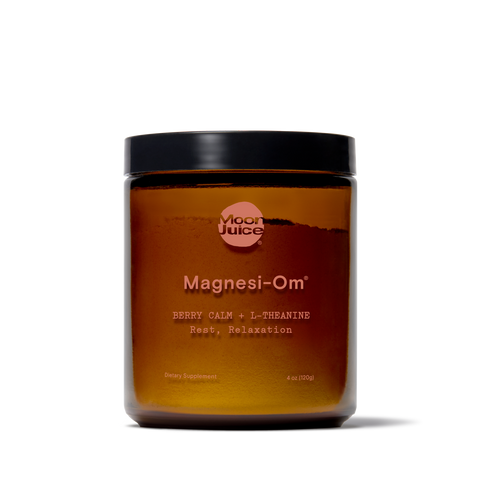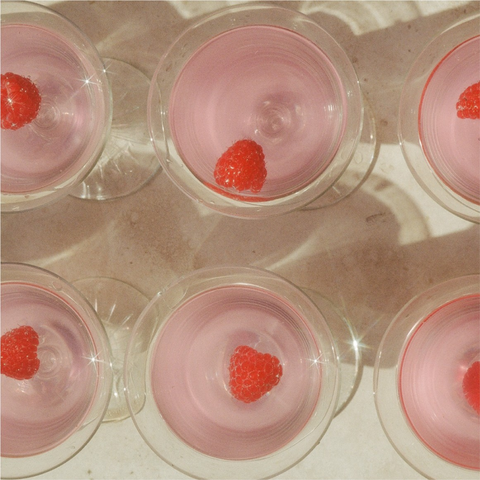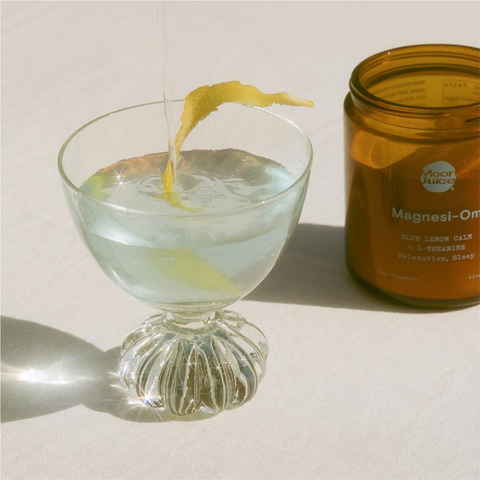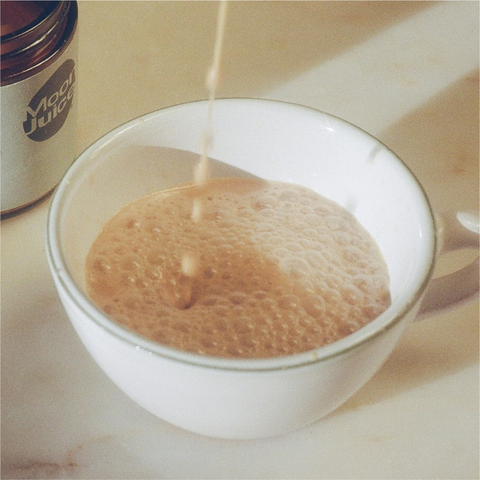If you suspect you might not be getting enough minerals from your diet, there’s a simple solution: add minerals to your water to help cover your needs!
Many Americans struggle to get the recommended amount of micronutrients through what they eat. In fact, 90% of the US has a mineral deficiency or imbalance. For example, minerals like magnesium, potassium, calcium, and iron are among the top nutrients that are commonly under-consumed.
Even if you’re eating a healthy diet packed with mineral-rich foods, many of those fruits and vegetables may not contain the vitamin and mineral density that they once promised. That’s because today’s soils are largely depleted of nutrients as a result of modern agricultural practices.
In addition to that, many water filtration methods, such as reverse osmosis systems, also remove essential trace minerals from your drinking water. Reverse osmosis water is lacking in the minerals you need for sparkling health. So, if you’re looking for more ways to reach the recommended daily mineral intake, read on for how to add minerals to water naturally.
Here’s how to add healthy minerals to your bottled water as part of your everyday hydration.
1. Adding Mineral Powders
If you’re wondering how to add minerals to water, mineral powder is an easy way. Mineral drink mixes like electrolyte drink powders are formulated with the minerals your body needs for optimal health and can help replace nutrients that reverse osmosis filters have removed.
Electrolyte Powders
Many electrolyte powders are sold as sports or workout supplements and contain sugar and artificial flavoring and ingredients that you might want to avoid. For daily use, look for a mineral powder that’s organic and sugar-free, with natural ingredients.
Mini Dew™ combines electrolytes with ionic trace minerals and chelated essential minerals to help give your body what it needs to feel good and energized. It contains an optimal profile of minerals like calcium, magnesium, zinc, potassium, and other minerals that your body needs to stay balanced and healthy, helping you easily meet your recommended daily mineral intake.
Mix 1 teaspoon of this electrolyte drink powder in 12 ounces of water every day. It dissolves instantly and tastes like watermelon or pomelo, a pinch of minerals and a dash of pink salt. Mini Dew also comes in Sticks, which offer a quick and easy way to add electrolytes to water on the go.
Magnesium Mixes
Because 50% of us have a magnesium deficiency specifically, you may want a magnesium powder to support your health as well. Nightly Magnesi-Om can provide you with three bioavailable forms of this essential mineral to help restore cellular balance, while Sleepy Magnesi-Om is formulated with Magnesium and a Melatonin microdose from plants to support your non-groggy slumber.
These natural magnesium powders dissolve instantly in water. Add 1 teaspoon of Blue Lemon or Berry Magnesi-Om to water before bed, or any time you need to chill. Add 1 teaspoon of Blackberry Sleepy Magnesi-Om to water before bed.
2. Adding Trace Mineral Drops
Much like mineral powders, mineral tincture drops are an easy way to add healthy minerals to your clean water. Mineral drops are just liquid solutions with a high concentration of essential and trace minerals.
Add your trace mineral drops to water according to the instructions on the label and mix well to turn any distilled water, filtered water, or reverse osmosis tap water into mineral water.
Mineral drops often have a strong mineral taste, so try adding them to juice, shrubs, or other flavored beverages if you want to mask the flavor but still experience the benefits of trace minerals.
3. Incorporating Sea Salt
Did you know you can make a homemade electrolyte drink with regular household ingredients? Less refined and more mineral-rich than ordinary table salt, sea salt is an easy way to incorporate more beneficial minerals into your regular water using a basic ingredient you likely already have on your kitchen counter.
Have Himalayan pink salt? Even better. There are lots of benefits of Himalayan salt thanks to its high concentration of beneficial minerals! The blush pink color of Himalayan salt comes from impurities due to trace minerals in the salt. Himalayan salt is prized for containing these additional trace minerals as opposed to regular table salt.
Add a pinch of sea salt or himalayan pink salt into your next glass of water and mix well for a mineral boost. Just avoid consuming too much salt in your diet, particularly from table salt and processed foods, as most of us need to watch our Sodium intake.
4. Infusing with Fruit and Herbs
There are so many important electrolytes and trace minerals to be found naturally in organic fruits, veggies, and herbs. Because these minerals are water soluble, they can be gleaned from infused waters. If you’re limiting your carb or sugar intake and still want to consume beneficial minerals, infusions are one way to increase the mineral content of your pure water without overloading on calories.
You can use an infuser that’s made specifically for this, or simply mix mineral-rich fruits and herbs like lemons, cucumbers, watermelons, oranges, basil, mint, limes, apples, grapefruit, kiwi, or berries into your purified water or tea. This is a great use for leftover ends and herbs that would otherwise be discarded.
The smaller you cut your produce, the more electrolytes and nutrients you encourage to seep into your pure water. Keep tea steeping for a few minutes, as some nutrients might be more sensitive to heat.
5. Using a Mineral Water Filter
Just as regular water filters can purify your tap water, depleting its minerals through reverse osmosis, some can actually remineralize water at the same time. These water filters can be installed on your tap to purify and remineralize your drinking water to help your hydrating stay balanced.
If you’re considering this route, know that these water filtration methods can be expensive and require some upkeep, with the filters needing to be changed regularly about every year or sooner, depending on instructions.
6. Adding Green Tea
Green tea leaves are another source of minerals like potassium, calcium, phosphorus, and magnesium. In addition to replenishing the body with electrolytes, green tea is also a valuable source of bioactives with antioxidant capabilities, like powerful polyphenols.
Green tea is known to have many health benefits, with natural L-Theanine to help smooth out the caffeine, which is why it's also a great natural alternative to coffee.
You can steep your green tea in hot water or drink it chilled if you prefer iced tea. Its light, herbaceous flavor pairs well with fruits, mint, and citrus. You can also get green tea in the form of matcha, which is the entire green tea plant, grown in shade and then powdered. Because you’re consuming the entire plant, not just infused tea, you can reap more benefits when drinking matcha.
7. Using Alkaline Pitchers
As opposed to tap filters, which filter out water straight from the sink, there are also water pitchers with built-in filters. Some water pitchers are touted as being alkaline pitchers that remove sediment and heavy minerals from hard water, purify it, and then enhance the water with alkaline remineralization.
This essentially means that while purifying the hard water, these pitchers also reload the clean water with micronutrients and raise the pH to alkaline levels to make drinking water taste better. This also allows you to keep your water cool in the fridge.
When using an alkaline pitcher, be sure to follow the manufacturer’s instructions for prepping, cleaning, and use, and change out the filter regularly as needed—it could be as often as every few months.
One drawback to using a handheld pitcher is that most of them are made of plastic, which is another health concern to consider when drinking water.

Takeaways
Electrolytes and minerals are important micronutrients that our bodies need to function properly. We need essential minerals like Potassium, Magnesium, Calcium, Copper, Phosphorus, Iron, Manganese, Chloride, and others—as well as trace minerals in smaller amounts—in order to achieve optimal health.
Yet many of us aren’t getting our minerals in adequate amounts through our diets alone. If you’re looking for some easy ways to up your intake of key minerals, consider adding minerals to your water.
There are several ways to do this, from remineralizing water at the source with a fixture or appliance to infusing your purified water with fresh, natural minerals from fruit and herbs. In a pinch, consider adding a bit of sea salt or a bag of green tea with lemon to your water. Just keep in mind that you may have to diversify the additional ingredients you use to ensure you are getting a healthy mix of different minerals.
Because it’s not always easy to track how many minerals are in your water or infusions, a mineral supplement such as an electrolyte powder, magnesium mix, mineral drops, or other drink add-ins can help you cover your bases of both essential minerals and trace minerals.
With organic fruit flavors and a bit of Himalayan pink salt mined from ancient ocean beds, Mini Dew™ is a sugar-free mineral mix to help you remineralize your body to support its complex electrical system.
Simply adding Mini Dew™ to your water can give your body the electrolytes and minerals it needs to feel good and energized.
Sources
- Oregon State University, Micronutrient Information Center: Micronutrient Inadequacies in the US Population: an Overview https://lpi.oregonstate.edu/mic/micronutrient-inadequacies/overview
- National Library of Medicine, Beneficial Properties of Green Tea Catechins https://www.ncbi.nlm.nih.gov/pmc/articles/PMC7084675/?report=reader





